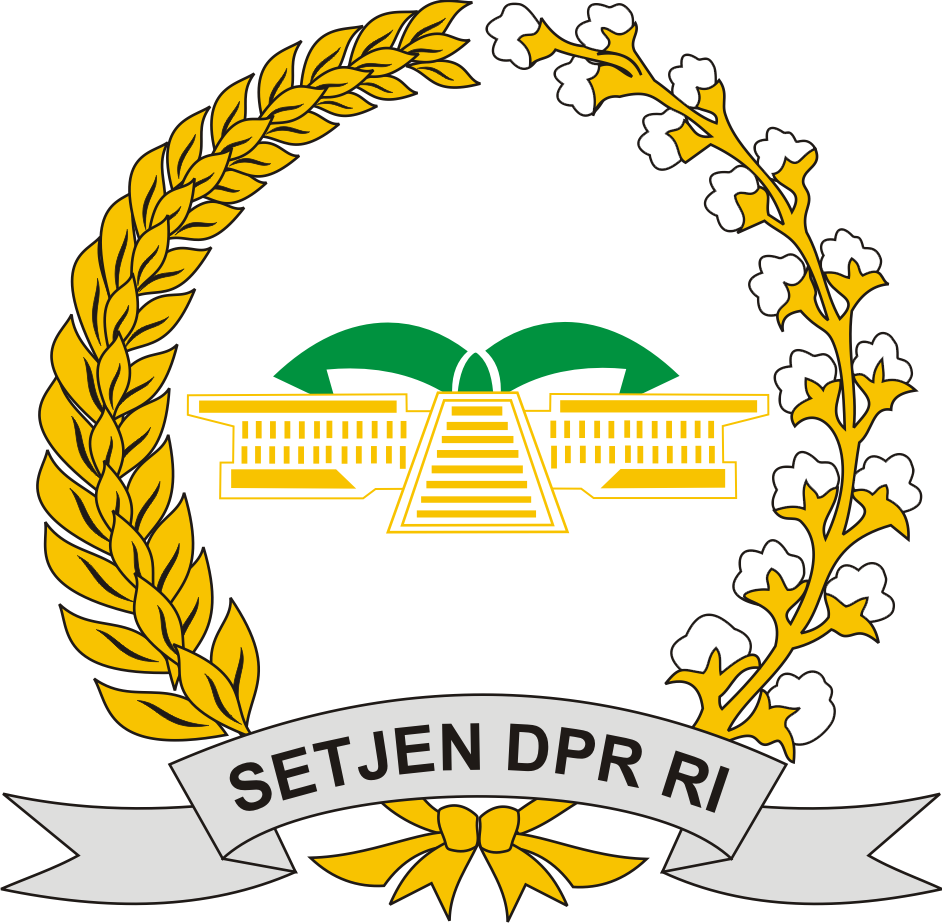Memahami Penggunaan Pasal 12 UUD 1945 dalam Perspektif Legislative Model di Indonesia
Abstract
This article analyzes the application of Article 12 of the 1945 Constitution as the constitutional basis for the State of Emergency (Hukum Tata Negara Darurat) in Indonesia. The study is driven by the historical tendency to abuse emergency powers and the marginalization of the legislature’s role in declaring a state of danger. The main question addressed is: How can the provisions of Article 12 be understood and applied within the framework of the Legislative Model to ensure legislative involvement and oversight over presidential emergency powers? The purpose of this study is to explain how Article 12 of the 1945 Constitution can be interpreted within this framework to strengthen legislative oversight and provide a normative foundation for emergency law reform in Indonesia. This research employs a doctrinal method, using conceptual and statutory approaches. The findings show that Article 12 of the 1945 Constitution not only grants authority to the President but also mandates the involvement of the House of Representatives (DPR) in determining the conditions and consequences of an emergency through legislation. The conclusion highlights the urgent need to reform emergency-related regulations in line with Article 12 of the 1945 Constitution and to establish a clear mechanism for legislative oversight.
AbstrakTulisan ini menganalisis penerapan Pasal 12 UUD 1945 sebagai dasar konstitusional dalam Hukum Tata Negara Darurat (HTN Darurat) di Indonesia. Kajian ini dilatarbelakangi oleh kecenderungan historis penyalahgunaan kewenangan darurat dan pengabaian peran legislatif dalam penetapan keadaan bahaya. Permasalahan utama yang dikaji adalah: Bagaimana pengaturan dalam Pasal 12 UUD 1945 dapat dipahami dan diterapkan dalam kerangka Legislatif Model guna menjamin keterlibatan dan pengawasan lembaga legislatif terhadap kewenangan darurat Presiden?Tujuan penulisan ini adalah untuk menjelaskan bagaimana Pasal 12 UUD 1945 dapat diinterpretasikan dalam kerangka tersebut, guna memperkuat peran pengawasan legislatif terhadap kewenangan darurat Presiden dan memberikan dasar pembaruan hukum kedaruratan di Indonesia. Metode penelitian yang digunakan adalah doktrinal dengan pendekatan konseptual dan perundang-undangan. Hasil kajian menunjukkan bahwa Pasal 12 UUD 1945 bukan sekadar memberi kewenangan kepada Presiden, tetapi juga mengatur keterlibatan DPR dalam menetapkan syarat dan akibat pelaksanaan keadaan darurat melalui undang-undang. Simpulan menekankan pentingnya pembaruan regulasi dengan karakter kedaruratan yang merujuk pada Pasal 12 UUD 1945 dan memperjelas mekanisme pengawasan legislatif.
Keywords
References
Arsil, Fitra, dan Qurrata Ayuni. “Model Pengaturan Kedaruratan dan Pilihan Kedaruratan Indonesia dalam Menghadapi Pandemi Covid-19.” Jurnal Hukum & Pembangunan 50, no. 2 (2020).
Arsil, Fitra, Qurrata Ayuni, dan Ariesy Tri Mauleny. “The Disappearance of the ‘Legislative Model’: Indonesian Parliament's Experience in Response to Covid-19.” The Journal of Legislative Studies 30, no. 3 (2024).
Asshiddiqie, Jimly. Hukum Tata Negara Darurat. Jakarta: PT Raja Grafindo Persada, 2007.
Ayuni, Qurrata, et al. “Conceito e Implementação sobre o Estado de Emergência na Indonésia: Perspectivas para Fortalecer Freios e Contrapesos Durante a Crise.” Revista de Investigações Constitucionais 9 (2022): 11–36.
Ayuni, Qurrata. Konsepsi Hukum Tata Negara Darurat dalam Perspektif UUD 1945. Jakarta: Universitas Indonesia Publishing, 2024.
Ayuni, Qurrata, Satya Arinanto, Fitra Arsil, Maria Farida Indrati, dan Fatmawati. “‘State of Emergency’ Proclamation Authority in Indonesia Disaster Case.” Elementary Education Online 19, no. 4 (Januari–April 2020): 3522–3526.
Ayuni, Qurrata. “Tipologi Penggunaan Hukum Tata Negara Darurat: Sebuah Studi Literatur.” Jurnal Hukum & Pembangunan 52, no. 4 (2023): 1–15.
Ayuni, Qurrata. “The Challenges of Covid-19 National Economic Recovery in Indonesia: The Need for Accountability During Emergency.” University of Bengkulu Law Journal 8, no. 2 (2023): 98–114.
Ayuningtyas, Dumilah, et al. “Implementasi Bantuan Sosial pada Era Pandemi Covid-19: Evaluasi Aspek Transparansi dan Akuntabilitas.” Integritas: Jurnal Antikorupsi 8, no. 1 (2022): 51–62.
Baskoro, Dewo, Fitra Arsil, dan Qurrata Ayuni. “The Authority of the Indonesian Power Holder Related to the State of Emergency in Terms of the Law on States of Emergency.” In Advancing Rule of Law in a Global Context, edited by Heru Susetyo, Patricia Rinwigati Waagstein, and Akhmad Budi Cahyono, 81–89. London: CRC Press, 2020.
Bradley, Anthony Wilfred, dan Keith D. Ewing. Constitutional and Administrative Law. Vol. 1. London: Pearson Education, 2007.
Ferejohn, John, dan Pasquale Pasquino. “The Law of the Exception: A Typology of Emergency Powers.” International Journal of Constitutional Law 2, no. 2 (2004): 210–230.
Ginsburg, Tom, dan Mila Versteeg. “The Bound Executive: Emergency Powers During the Pandemic.” International Journal of Constitutional Law 19, no. 5 (2021): 1498–1535.
Hakim, Abdul Hamid. Mabadi’ Awwaliyah. Jakarta: al-Maktabah as-Sa’diyah Putra, t.t., 1976.
Mishael, Georgy, Joko Setiyono, dan Soekotjo Hadiwinoto. “Kebijakan Operasi Militer Tentara Nasional Indonesia terhadap Organisasi Papua Merdeka dalam Perspektif Hukum Humaniter Internasional.” Diponegoro Law Journal 5, no. 2 (2016): 1–12.Taufiqurrohman, Moch Marsa, et al. “The Use of Necessitas non Habet Legem and Wederspannigheid in Law Enforcement for Covid-19 Vaccination in Indonesia.” Nature Medicine 27, no. 2 (2021): 473–488.
Oraá, Jaime. Human Rights in States of Emergency in International Law. Oxford: Clarendon Press, 1992.
Rossiter, Clinton. Constitutional Dictatorship: Crisis Government in Modern Democracies. New York: Routledge, 2017.
Schmitt, Carl. Political Theology: Four Chapters on the Concept of Sovereignty. Translated by George Schwab. Chicago: University of Chicago Press, 2005.
Sihombing, Herman. Hukum Tata Negara Darurat di Indonesia. Jakarta: Djambatan, 1996.
Van Hoecke, Mark. Methodologies of Legal Research. Oxford: Hart Publishing, 2011.

This work is licensed under a Creative Commons Attribution-NonCommercial-ShareAlike 4.0 International License.
Refbacks
- There are currently no refbacks.



.png)
1.jpg)



 Qurrata Ayuni
Qurrata Ayuni








